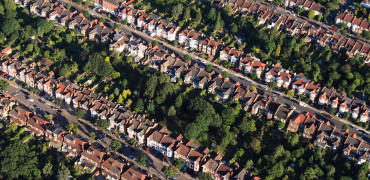The Clean Growth Strategy is an ambitious document, reflecting the importance that the UK Government is placing on a move away from carbon-based fuels. In the introduction, Prime Minister Theresa May states: “Clean growth is not an option, but a duty we owe to the next generation.”
The strategy sets out how the UK will cut emissions, increase efficiency and help lower the costs of energy to consumers and businesses. The Clean Growth Strategy is broad in its coverage. It encompasses how we heat our homes, power our cars and run the National Grid. And as this is a Government document, all of these ambitions are tied to providing economic growth and jobs too.
There are no silver bullets to solve the challenge of achieving economic growth in an environmentally responsible way
Heating is identified early in the document as being responsible for 32% of total UK emissions. As the document states: “If done in the right way, cutting emissions (from heating buildings) can benefit us all through reduced energy bills.”
Heating of homes is currently responsible for 13% of UK emissions, and improving the standard of UK homes is one of the key objectives that is central to making heating more efficient – there’s no point using low-carbon technologies if a home is poorly insulated and leaking warmth.
A focus on upgrading the fuel-poor
Government intends to support £3.6 billion of investment to upgrade a million homes through the Energy Company Obligation (ECO). What’s more, the intention is that all fuel-poor homes will be upgraded to a minimum EPC rating of C by 2030 – and “as many homes as possible” to be C rated by 2035. The strategy also states that the Building Regulations will be strengthened around energy performance standards for new and existing homes. The smart meter roll-out will also push ahead.
The document very specifically highlights heat networks as central to delivering lower carbon, affordable heating. And homes that are off the gas grid will be “phased off” high carbon fossil fuel heating such as oil. This applies to new and existing off gas grid homes during the 2020s.
The strategy refers to “Heat decarbonisation” , which includes the electrification of heating as households move away from gas boilers to electric heat pumps. However, there is an added challenge here that the Grid itself will need to be ready for these extra demands on infrastructure.
Some highlights from the Clean Growth Strategy 2017:
Some key points from this ambitious document
-
Taskforce
Set up a Green Finance Taskforce to recommend how to deliver public and private investment required to deliver the plan.
-
Support business
Develop measures to support businesses to improve their energy productivity by at least 20% by 2030. This includes a consultation on how to improve the energy efficiency of new and existing commercial buildings.
-
Simplify
Simplify requirements for businesses to measure and report on energy use.
-
Low carbon heating
Roll out low carbon heating with support for heat networks and phase out the use of fossil fuels for homes that are off the gas grid.
-
Improving existing boilers
Improve standards on the 1.2 million boilers installed every year – and require installation of controls to help energy efficiency.
You can download the full document here.
There are no easy answers to making heating more efficient and less carbon intensive. But one of the main themes of the Clean Growth Strategy document is that there are no silver bullets to solve the challenge of achieving economic growth in an environmentally responsible way. However, in recognising this, the Government has set aside several billion pounds (through various funds) to support innovation and development of new techniques. For example, Government will invest around £184 millions of public funds, including two new £10 million innovation programmes to develop new energy efficiency and heating technologies to bring down the cost of low carbon homes. The innovation will therefore be led by the market, and by manufacturers and installers who see Clean Growth as an opportunity.
Karen Fletcher is editor of Modern Building Services.
If you have any questions about this article, you can contact us via email. Or if you would like to tweet us, please follow our MEUK_LES twitter page.
We upload new articles every week so remember to check back regularly.
You can also sign up for our monthly newsletter below.


